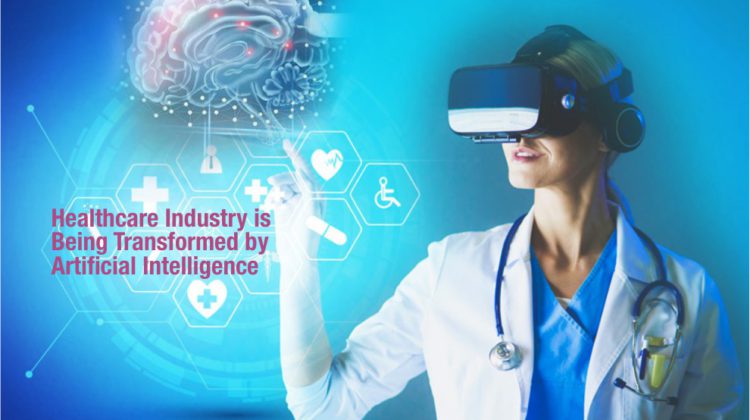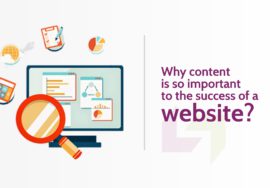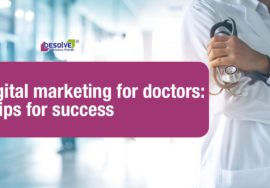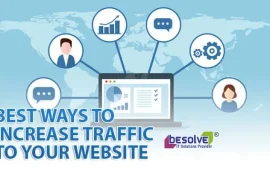
Healthcare Industry is Being Transformed by AI
The Future of the Healthcare Industry is Being Transformed by AI
Healthcare Industry is Being Transformed by AI
The impact of artificial intelligence (AI) has spread to numerous businesses and sectors worldwide in recent years. The healthcare sector is one where AI can help humanity the most as we start a new decade in 2020. According to a Statista estimate, the worldwide artificial intelligence business was only worth $1 billion in 2017 but will grow to $25 billion by 2025.
In this essay, we’ll examine how AI has benefited the healthcare industry, as well as its current difficulties and prospects for the future.
Health Care and Artificial Intelligence
The first attempt to use artificial intelligence in healthcare was made in the 1970s when researchers created Mycin, an expert system that could recognize germs that cause infections and suggest appropriate treatments.
Expert systems as a whole fell out of favor in the 1980s, and as of late, modern machine learning and deep learning approaches are making promises to fundamentally alter the existing state of the healthcare industry.
Let’s look at a few of the main areas where AI has contributed to healthcare. Healthcare Industry is Being Transformed by AI
Disease Detection and Diagnosis
AI can assist radiologists and doctors in making more accurate diagnoses or spotting certain diseases earlier, which could save many people’s lives. A deep learning convolutional network was found to be 95% accurate at detecting skin cancer in 2018, compared to 86.6% for dermatological professionals.
It was revealed in January 2020 that in one study, Google’s AI was able to identify breast cancer more accurately than real radiologists. With the use of AI, false positive and false negative results were reduced by up to 5.7% and 9.4%, respectively.
The Future of the Healthcare Industry is Being Transformed by AI
Understanding a Disease
Applying artificial intelligence to historical medical and genetic records could reveal the relationship between diseases within a family or within a community that is related to location or race. With the use of this information, individuals can receive a risk marker and take prompt preventive action.
Predictive analysis can also be used to anticipate disease outbreaks on a more global scale. A Bluedot firm forecasted the latest Coronavirus outbreak in January 2020 as early as December 2019. They identified Wuhan, China as a probable red zone for a potential virus outbreak well in advance using vast amounts of web news data, government data, and data on animal and plant diseases.
Individualized Treatment Program
By analyzing historical treatment data from patients with comparable problems, AI can be utilized to generate a more individualized therapy plan for individuals. IBM developed Watson, an AI system, in 2013, and it was taught to develop treatment recommendations for cancer patients.
A major benefit of such a system is that hospitals in smaller towns and cities, where there is a shortage of skilled medical professionals, can adopt it.
Drug Research
The process of discovering new medications for the treatment of diseases takes place in R&D facilities. However, the procedure is not straightforward and calls for biological and chemistry skills to propose a novel medicine formula that frequently fails during clinical trials.
AI is being used by researchers to forecast potential medicine combinations as well as whether these drugs will succeed in clinical trials.
Healthcare AI’s Challenges
The promise of AI in healthcare is tremendous, but there are numerous obstacles to overcome. Let’s talk about some of the important concerns.
Since few people are willing to publish their medical records openly for the benefit of bettering training machine learning models, data privacy and ethical considerations are the key barriers here.
The acceptance of AI among medical professionals and patients is currently quite low. Modern, state-of-the-art deep learning models exhibit good accuracy, but they are opaque, making it difficult to understand their predictions or suggestions.
Doctors will never be able to be replaced by AI in the future, at least not anytime soon. However, it has the potential to develop into a fantastic tool and facilitator for the future of the healthcare industry. BESOLVE® is likewise traveling into the future and making the most cutting-edge use of artificial intelligence in a variety of industries, including healthcare.









